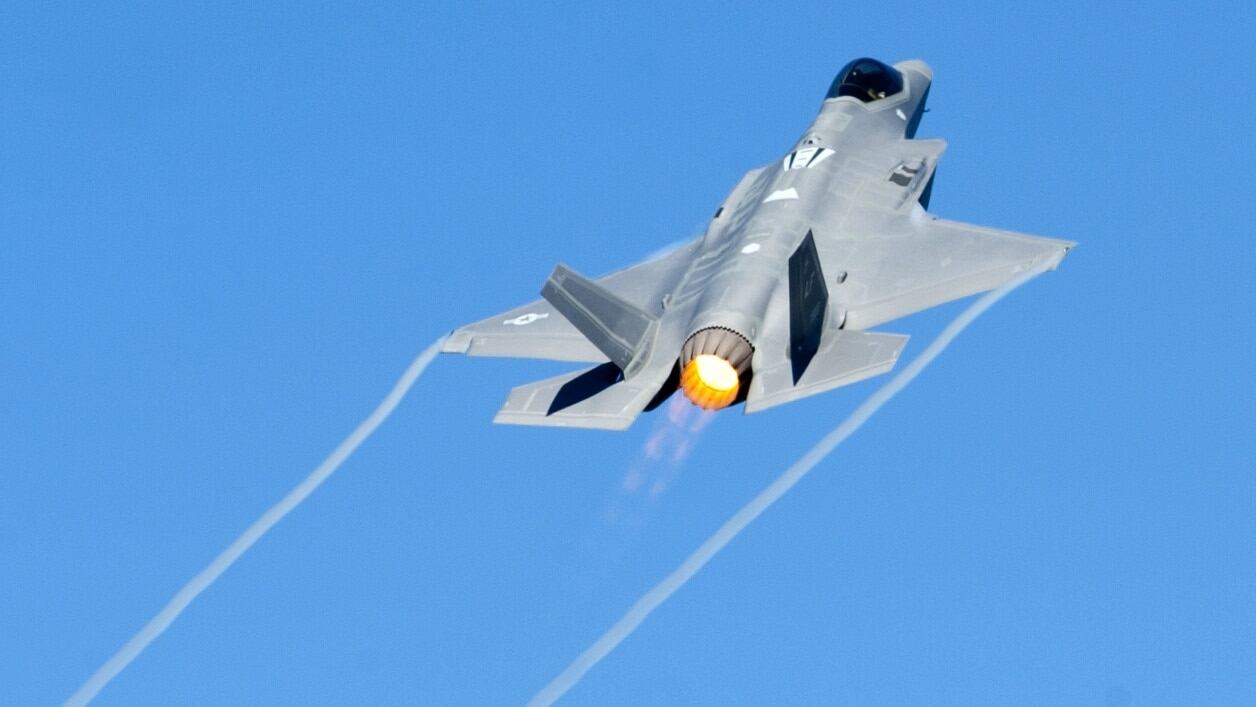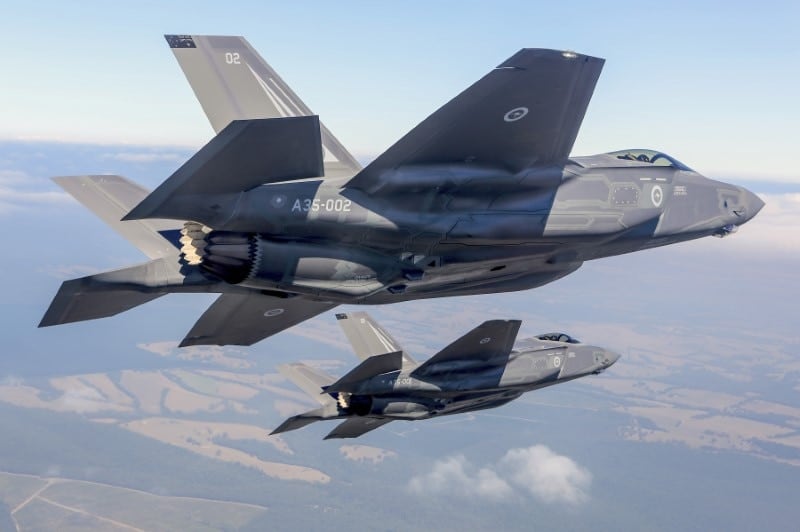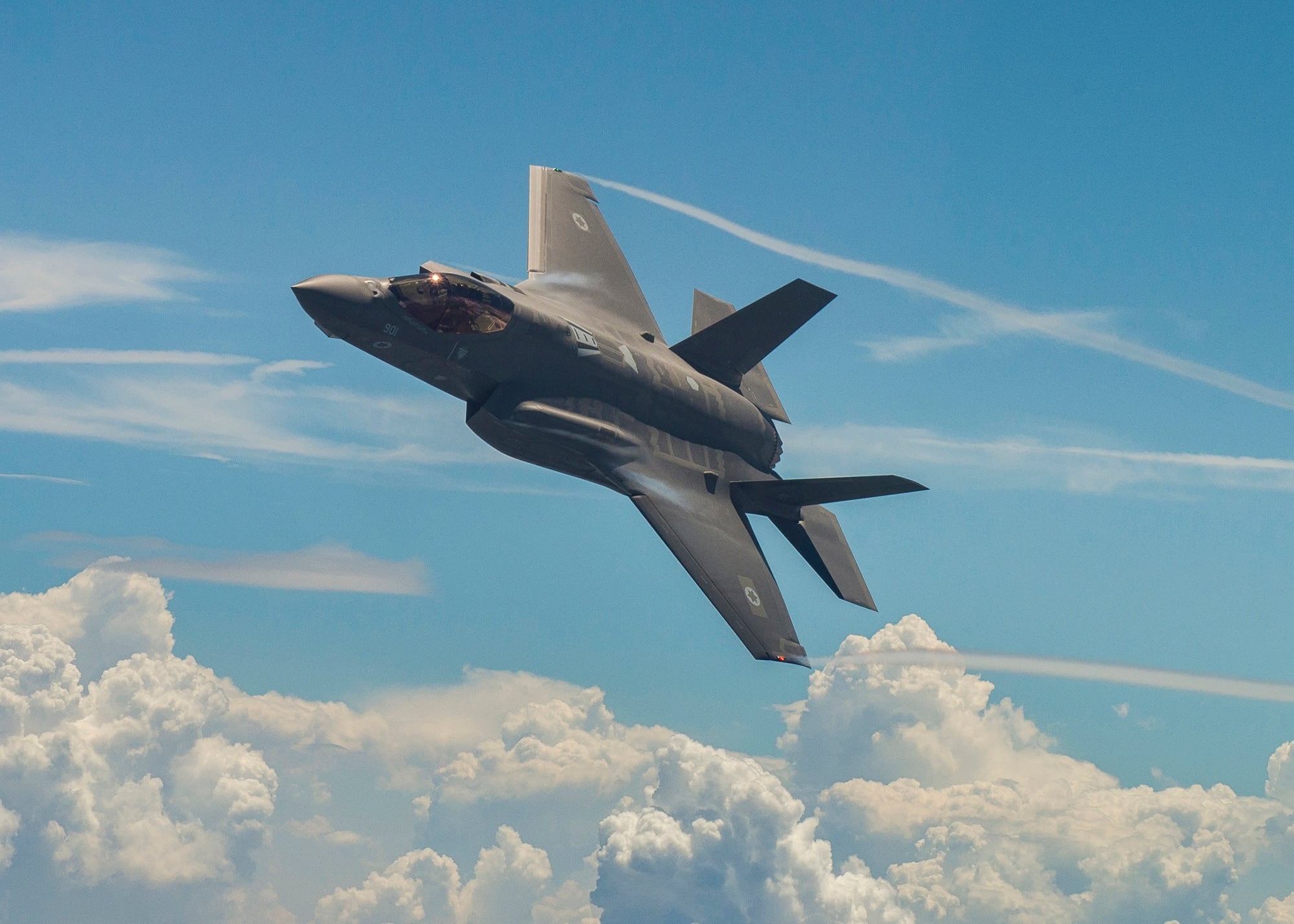WASHINGTON — The F-35 joint program office is aiming to cement a contract agreement with Lockheed Martin for the 11th batch of joint strike fighters by the end of the year.
But the new head of the program office, Vice Adm. Mat Winter, wants to get it done even faster, telling reporters on Sept. 6, “I’m pressurizing the team for 15 October.”
The JPO has finalized its proposal, which will decrease the price of an F-35A conventional takeoff and landing model to less than the $94.6 million per unit price in the lot 10 deal, he said after a speech at the Defense News Conference.
“We are doing the technical evaluation and the discussions back and forth with Lockheed Martin Aero[nautics] on the airframe and with Pratt & Whitney ... on the engine. It’s actually proceeding on pace, ahead of pace of the lot 10 negotiation timeline,” he said. “We are targeting the end of the calendar year for definitization of lot 11.”
RELATED

Winter said that reaching a deal in October would be “a long putt,” but that he wants to get contract negotiations “back in phase with the fiscal year.”
To stay on schedule, the JPO needs to cement a deal for lot 11 by the end of FY17, lot 12 in FY18 and so on. It takes about two years for Lockheed to go from a contract award to delivery of an F-35, so even though the JPO hasn’t awarded a lot 11 contract yet, Lockheed is already gathering materials needed for that batch of aircraft, Winter acknowledged.
RELATED

Going forward, “I want proposals, evaluations, award in the fiscal year that it was funded for,” he said, who called the slow progress on lot 10 negotiations ”acquisition malpractice.”
The JPO and Lockheed reached a handshake agreement for the 10th lot of F-35s on Feb. 3, more than a year later than the program office had expected. Both the JPO and Lockheed Martin officials have stressed that intervention by U.S. President Donald Trump helped push negotiations forward and lower unit costs, which fell about 7.5 percent — a bit lower than the 6 to 7 percent price reduction predicted by the program office.
RELATED

The Defense Department has already awarded two advanced payments to Lockheed using a mechanism called a unilateral contract agreement. Those UCAs were worth $3.7 billion and $5.6 billion and included funding for 141 planes, including 50 for international customers.
Valerie Insinna is Defense News' air warfare reporter. She previously worked the Navy/congressional beats for Defense Daily, which followed almost three years as a staff writer for National Defense Magazine. Prior to that, she worked as an editorial assistant for the Tokyo Shimbun’s Washington bureau.








